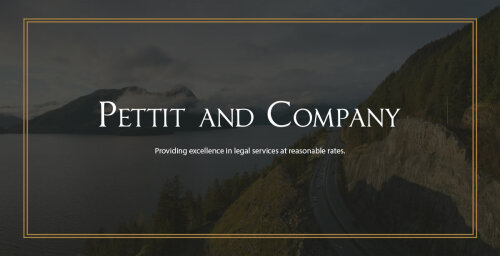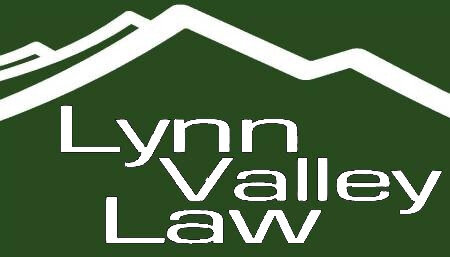Best Property Insurance Lawyers in North Vancouver
Share your needs with us, get contacted by law firms.
Free. Takes 2 min.
List of the best lawyers in North Vancouver, Canada
About Property Insurance Law in North Vancouver, Canada
Property insurance in North Vancouver, Canada, is designed to protect property owners from financial losses related to damage or loss of their property. This area of law governs the policies and regulations surrounding property insurance contracts, claims, and disputes. North Vancouver, with its scenic landscapes and urban environments, requires property owners to consider both geological and urban risks when accessing property insurance. Given the complexities surrounding insurance claims and policies, understanding local insurance law is crucial to navigating potential legal challenges effectively.
Why You May Need a Lawyer
There are several common instances where legal assistance is beneficial when dealing with property insurance in North Vancouver:
1. Claim Denial: Insurance companies might deny claims based on various grounds. Legal expertise can help in determining the validity of a denial and assist in appealing such decisions.
2. Policy Disputes: Misunderstandings or disagreements about policy coverage, terms, or conditions often require legal interpretation to protect one's interests.
3. Fraud Allegations: Being accused of insurance fraud can have serious legal consequences. A lawyer can provide defense and guide you through the legal process.
4. Settlement Negotiations: Lawyers can help negotiate fair settlements with insurance companies, ensuring you receive the maximum compensation entitled to you under your policy.
5. Third-party Claims: In cases where third parties are involved, and liability is disputed, legal help can assist in determining liability and pursuing or defending claims appropriately.
Local Laws Overview
North Vancouver falls under the jurisdiction of British Columbia's laws and regulations regarding property insurance. Key aspects include:
1. Insurance Act of British Columbia: This act outlines the foundational rules for insurance contracts, insurer obligations, and policyholder rights within the province.
2. Statutory Conditions: Certain standard conditions must be included in all property insurance policies, like notice of loss, proof of loss, and fraud provisions.
3. Consumer Protection Framework: Offers protection to policyholders against unfair practices by insurers, providing recourse options through the Insurance Council of British Columbia and other bodies.
4. Earthquake and Flood Coverage: Given its geographic layout, special attention is paid to natural disaster coverage, and understanding local bylaws and requirements is essential.
Frequently Asked Questions
What is property insurance?
Property insurance provides financial reimbursement to the owner or renter of a property in case of damage or theft. Policies generally cover buildings, personal property, and sometimes liability exposures.
How do I file a property insurance claim?
Begin by notifying your insurer as soon as possible, document the damage or loss with photos, and submit a formal claim as per your policy requirements, providing any necessary documentation over damage assessed or incurred.
What do I do if my insurance claim is denied?
Review the denial letter for specific reasons, gather your supporting documentation, and contact a lawyer for a strategic plan, which may include filing an appeal.
How can I ensure my property is fully covered?
Review your policy to understand coverage limits and exclusions clearly. Consider additional riders for high-value items or natural disaster coverages that standard policies might exclude but are pertinent to North Vancouver's environment.
Are there any insurance mandates for homeowners in North Vancouver?
While there is no legal requirement to hold insurance, lenders often require it as a condition of a mortgage. Specific coverage for risks like earthquakes may be advisable owing to the local geography.
Can insurers cancel my policy without prior notice?
Insurers cannot cancel your policy without notice. They must provide a written notice of cancellation, citing valid reasons and a timeline as per British Columbia's Insurance Act stipulations.
What if I can't afford a lawyer?
Explore free consultation options with various law firms or contact community legal services that might offer pro bono services or fee arrangements in North Vancouver.
Are there time limits for filing insurance claims?
Yes, most insurance policies stipulate time limits for reporting claims and submitting proofs of loss. Review your policy and seek legal advice promptly if in doubt.
Does insurance cover all types of property damage?
Policies vary, and while most cover common occurrences like fire or theft, some damages, like those resulting from floods or earthquakes, may need additional coverage.
What steps should I take after property damage occurs?
Ensure safety first, report the incident to your insurer, document damages, restrict further damage if possible, and then seek legal or insurance advice for next steps.
Additional Resources
1. Insurance Bureau of Canada: Offers resources and assistance on understanding property insurance.
2. British Columbia Financial Services Authority: Regulates financial services and can handle consumer complaints about insurers.
3. North Shore Community Resources: Provides legal information services and may offer guidance on navigating insurance claims.
4. Insurance Council of British Columbia: Governs insurance licensees and assists with professional conduct issues.
Next Steps
If you require legal assistance for property insurance matters in North Vancouver, begin by assessing your situation and gather any relevant documentation. Contact a local attorney specializing in property insurance law for a consultation to explore your options. Utilize community resources like the free legal clinics at North Shore Community Resources or consider contacting the British Columbia Law Society's Lawyer Referral Service for a cost-effective start. Always ensure any legal advice you receive is from a licensed professional within the province.
Lawzana helps you find the best lawyers and law firms in North Vancouver through a curated and pre-screened list of qualified legal professionals. Our platform offers rankings and detailed profiles of attorneys and law firms, allowing you to compare based on practice areas, including Property Insurance, experience, and client feedback.
Each profile includes a description of the firm's areas of practice, client reviews, team members and partners, year of establishment, spoken languages, office locations, contact information, social media presence, and any published articles or resources. Most firms on our platform speak English and are experienced in both local and international legal matters.
Get a quote from top-rated law firms in North Vancouver, Canada — quickly, securely, and without unnecessary hassle.
Disclaimer:
The information provided on this page is for general informational purposes only and does not constitute legal advice. While we strive to ensure the accuracy and relevance of the content, legal information may change over time, and interpretations of the law can vary. You should always consult with a qualified legal professional for advice specific to your situation.
We disclaim all liability for actions taken or not taken based on the content of this page. If you believe any information is incorrect or outdated, please contact us, and we will review and update it where appropriate.










